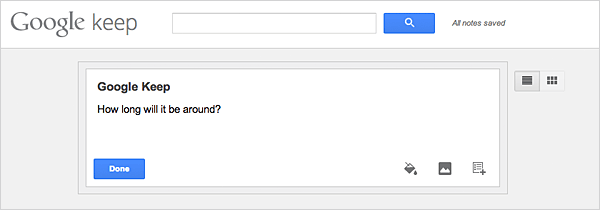"services" entries

It’s usability all the way down
Designing, building, and operating services from the perspective of customer goals helps improve quality.

We often tend to think about “usability” as applying to a separate layer of digital service from functionality or operability. We treat it as a characteristic of an interface which intermediates between the user and an application’s utility. Operational concerns such as performance, resilience, or security are even further removed. This approach gets reflected in siloed design-development-operations practices. From the perspective of service quality, though, I think it may be more constructive to view usability as a characteristic of service as a whole.
What is service, anyway? In the language of service-dominant logic, it’s something that helps a customer accomplish a job-to-be-done. From that perspective, usability refers to the customer’s ability to ‘use’ the service to accomplish their goals. Everything that contributes to, or compromises, that ability, impacts usability.

The demise of Google Reader: Stability as a service
How can we commit to Google's platform when its services flicker in and out of existence?
Om Malik’s brief post on the demise of Google Reader raises a good point: If we can’t trust Google to keep successful applications around, why should we bother trying to use their new applications, such as Google Keep?
Given the timing, the name is ironic. I’d definitely like an application similar to Evernote, but with search that actually worked well; I trust Google on search. But why should I use Keep if the chances are that Google is going to drop it a year or two from now?

In the larger scheme of things, Keep is small potatoes. Google is injuring themselves in ways that are potentially much more serious than the success or failure of one app. Google is working on the most ambitious re-envisioning of computing since the beginning of the PC era: moving absolutely everything to the cloud. Minimal local storage; local disk drives, whether solid state or rust-based, are the problem, not the solution. Projects like Google Fiber show that they’re interested in seeing that people have enough bandwidth so that they can get at their cloud storage fast enough so that they don’t notice that it isn’t local.
It’s a breath-taking vision, on many levels: I should be able to have access to all of my work, regardless of the device I’m using or where it’s located. A mobile phone shouldn’t be any different from a desktop. I may not want to write software on a mobile phone (I can’t imagine coding on those tiny touch keyboards), but I should be able to if I want to. And I should definitely be able to take a laptop into the hills and work transparently over a 4G network. Read more…

Instagram: On being the product
Getting customers to use a service and then changing the rules isn't a decent way to treat people.
Let me start by saying that I’m not an Instagram user, and never have been. So I thought I could be somewhat dispassionate. But I’m finding that hard. The latest change to their terms of service is outrageous: their statement that, by signing up, you are allowing them to use your photographs without permission or compensation in any way they choose. This goes beyond some kind of privacy issue. What are they doing, turning the service into some kind of photographic agency with unpaid labor?
I’m also angered by the response that users should be willing to pay. Folks, Instagram doesn’t have a paid option. You can be as willing as you want to be, and you don’t have the opportunity. Saying that users should be willing to pay is both clueless and irrelevant. And even if users did pay, I don’t see any reason to assume that a hypothetical “Instagram Pro” would have terms of service significantly different.
It really doesn’t have to be this way. I’ve used Flickr for a number of years. I’m one of the few who thinks that Flickr is still pretty awesome, even if it isn’t as awesome as it was back in the day. And I’ve had a couple of offers from people who wanted to use my photographs in commercial publications. One I agreed to, one I refused. That’s how things should work. Read more…

Apple and a web-free cloud
Apple's approach to the cloud is business as usual, and that's what makes it interesting.
From custom chips, to the data centers backing its new iCloud effort, Apple is committed to controlling the end-user experience. The web has no place in their vision.

BBC Shifts Conversation Style: Go Where They're Already Talking
I think this deserves to be pondered. BBC News is moving away from merely hosting comments to inciting discussion in a variety of formats and locations. From Reportr.net: For the US presidential debates, it [the BBC] has opened channels on video services Qik, 12Seconds and Phreadz. Some of the videos were subsequently edited and posted on the BBC News…

Open Question: Digital Ownership vs. Digital Subscriptions
Two tips in Dear Author's recent post "10 Things Epublishers Should Do for Readers" caught my attention: 1. Eternal Bookshelf. An eternal bookshelf means that every purchase you have bought can be downloaded at any time. Most of the larger etailers have this feature but not all. 2. Mass Downloads. Along with the eternal bookshelf should be the ability to…

Science Publisher Offers Digital Subscription to Books
Life-sciences publisher CABI is making its front-file titles (2005-2008) available through an annual digital subscription. The PDF-based collection is launching with 140 titles and CABI expects this to increase to 200 by the end of the year. Digital subscription services have already been well received in the tech and business industries: Safari Books Online is O'Reilly's third-largest reseller. (Disclosure: TOC…